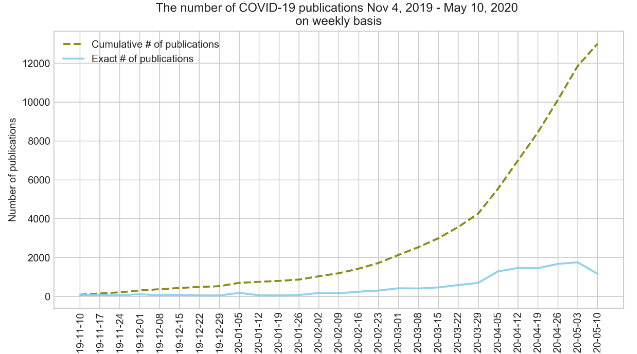Research on COVID-19 is increasing exponentially, but how can experts find it quickly? Utrecht researcher Rens van de Schoot looks to AI for the answer

Prof. Rens van de Schoot, Utrecht University, the Netherlands. Photo: Utrecht University.
|
Researcher: Prof. Rens van de Schoot, Utrecht University, the Netherlands Research area: Statistics for small data Key funder: The Dutch Research Council (NWO) Links: www.asreview.nl; www.rensvandeschoot.com Twitter @RensvdSchoot LinkedIn On CrowdHelix: Seeking contributors for Open Source project ASReview |
Throughout the research world, artificial intelligence is increasingly being applied to scanning complicated scientific literature more quickly than humans alone can do. At Utrecht University, Prof. Rens van de Schoot and his team are part of an international research community now applying that technology to COVID-19 publications.
In an edited email exchange with Diane M. Fresquez of Science|Business, van de Schoot talks about his work, and search for collaborators (have you got coding talent?) – initially, while under lockdown with his three children, aged six and under, who played quietly (or not so quietly) underfoot.
Q. Tell us about your COVID-19 project.
With an increase in COVID-19 research literature, and an urgency to find cures and treatments, it is essential that data collection is done real-time. That is, we need to update the database with COVID-19 related papers almost instantly. Then anyone with urgent questions can use our software to find relevant papers as quickly as possible.

To produce COVID-19 medical guidelines, for example, doctors need to scan hundreds or even thousands of COVID-19 related studies, by hand, to find relevant papers to include in their overview. This is error-prone and extremely time-intensive -- time we do not have right now! Artificial Intelligence (AI) can overcome the manual and time-consuming scanning of large amounts of data.
Our team developed an AI-aided system for literature review, as part of a project we call ASReview. It works with a COVID-19 publications library developed in the US, the CORD19 database. That collection is maintained by a group of research institutes led by the Seattle-based Allen Institute for AI, and currently has more than 130,000 COVID-19 related papers.
The software code of ASReview is available freely, or “open source”, via GitHub, and the open-source community is helping to improve the software. We are very grateful to all contributors!
Q. How does it work?
The system uses a technique called “active learning.” That means the human reviewer starts a literature search, and the machine learns from the reviewers’ decisions about what is important and what is not. It uses this knowledge in selecting the references that will be presented to the reviewer next. In this way, the COVID-19 related papers are ordered from most to least relevant. The goal of the tool is to help scholars and practitioners get an overview of the most relevant papers for their work as efficiently as possible, while being transparent in the process. It can cut hours from the work of searching for relevant papers.
Our system, we think, improves on existing search tools. In our software, one can choose from a variety of machine-learning models and even the newest deep learning models are available. It is open source, as opposed to proprietary. And we think it works, of course: data here on that.
Here’s a short video on how it works
Q. What was it like for you to work under lockdown?
It was not easy. My wife and I had to work while the children (aged six, four and two) were at home. When I was presenting my research on-line for different audiences, sometimes for large groups of hundreds of participants from the US or Indonesia, my children were either:
- Quietly playing next to me (not seen by the audience)
- Running and screaming (sorry for any ear damage caused!)
- Waving and smiling (ahhhhh, how cute)
- Pressing buttons on the computer, causing me to lose connection (whoops!)
But, we managed as a family!
Q. What’s next?
Research and development are very time-consuming. Our team of 18 dedicated researchers, engineers, and information specialists are working on the ASReview software. But for the development of the tool and nice-to-have features, like multi-user options, we need your help! People from around the globe with coding talent can help by developing new features themselves or by improving manuals on Github. This is citizen science at its best! See some of the discussions and interactions we’re having on Github here.
We have also put out a call on the UK open innovation platform, CrowdHelix: Seeking contributors for Open Source project ASReview. We need your help to take this open source project to the next level! And anyone in the world can help us via the crowdsourcing platform on our university website.
Q. Why does your work matter?
Having access to all relevant information is in itself a prerequisite for adequate decision-making regarding the pandemic, and transparency is key regarding which information is chosen to be included in policy advice and subsequent decision making and on what grounds - both by experts advising governments, and by governments, themselves.





 A unique international forum for public research organisations and companies to connect their external engagement with strategic interests around their R&D system.
A unique international forum for public research organisations and companies to connect their external engagement with strategic interests around their R&D system.